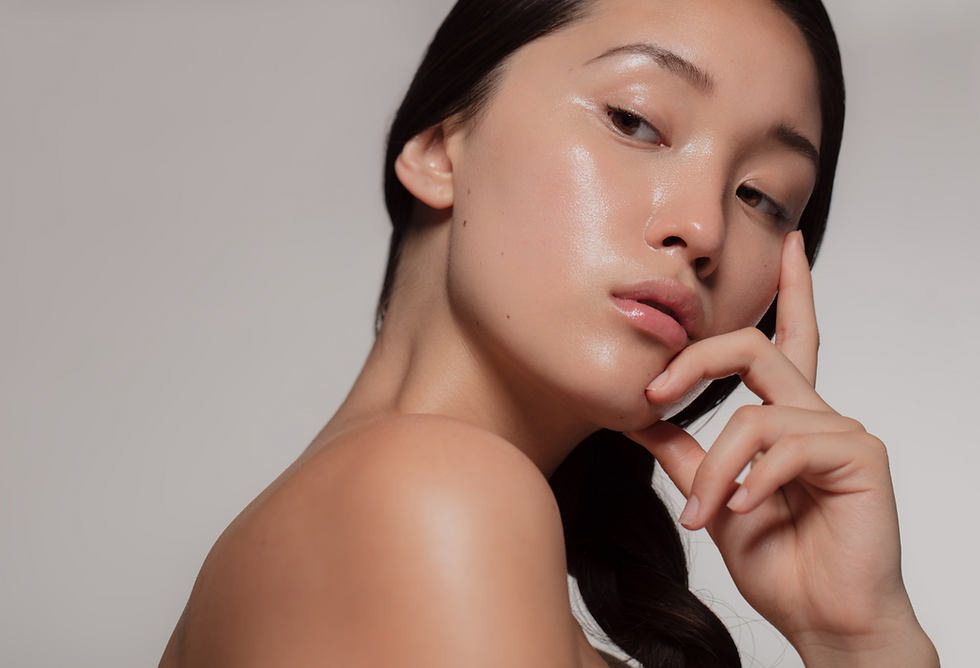The Skincare Myths That Need to Die in 2024
- Oct 24, 2024
- 2 min read
Updated: Mar 10, 2025
Open any social media app and prepare for an avalanche of skincare advice. Between viral TikTok trends and influencers hawking miracle products, separating fact from fiction has become nearly impossible. While some beauty myths have circulated since grandma's cold cream days, others spawn fresh falsehoods daily.

Time to set the record straight on five pervasive skincare myths.
The "All Natural" Fallacy
That "chemical-free" green juice mask? Pure marketing. Everything contains chemicals - water is a chemical compound. While botanical ingredients can work wonders, natural doesn't automatically mean safe or effective. Case in point: poison ivy. Perfectly natural, absolutely terrible for skin.
Meanwhile, science-backed synthetic ingredients deliver remarkable results. Take hyaluronic acid - this lab-created moisture magnet helps skin retain water better than most plant extracts ever could. Smart skincare focuses on proven effectiveness, not origin stories.
The Anti-Aging Arms Race
The beauty industry pushes twenty-somethings toward "preventative" products with promises of eternal youth. Save that credit card - the best anti-aging product for young skin is sunscreen, period. Sun damage drives premature aging more than any other factor.
Build good habits early: daily SPF, gentle cleansing, basic moisture. Skip the $300 eye creams promising to reverse time. Youth already brings natural collagen and elasticity - protect it with sun defense instead of fighting imaginary wrinkles.
The Oily Skin Paradox
"Skip moisturizer if you have oily skin" ranks among skincare's most destructive myths. Dehydrated skin often overproduces oil to compensate. Denying moisture only triggers more sebum production - a vicious cycle of shine.
Breaking free requires the right hydration. Lightweight, oil-free moisturizers balance skin without suffocation. Once the skin barrier stabilizes, oil production typically settles too. Counter-intuitive? Yes. Effective? Absolutely.
The Luxury Tax Trap
Premium skincare brands excel at packaging and marketing. Their formulations? Often remarkably similar to drugstore alternatives. The same powerhouse ingredients - niacinamide, vitamin C, retinol - appear across price points.
That gold-flecked $200 serum might feel indulgent, but its manual-sized ingredient list rarely justifies the markup. Smart shoppers focus on formulations over fancy packaging. Effective skincare shouldn't require a second mortgage.
The Complexity Myth
Somewhere between three-step routines and fifteen-product regimens, skincare became needlessly complicated. Reality check: most dermatologists endorse simple, consistent care over elaborate rituals.
A basic routine - gentle cleanser, targeted treatment, moisturizer, and sunscreen - treats most skin concerns effectively. Layering twelve different actives often leads to irritation rather than improvement. Sometimes less truly delivers more.
Beyond the Myths
Understanding skincare means moving past quick fixes and miracle claims. Healthy skin requires patience, consistency, and evidence-based choices. The goal isn't Instagram-filter perfection but rather nurturing skin's natural functions.
Next time questionable advice surfaces (looking at you, lemon juice face masks), consider the source. Real results come from understanding skin science, not chasing trends. Sometimes the simplest approach proves most revolutionary of all.



